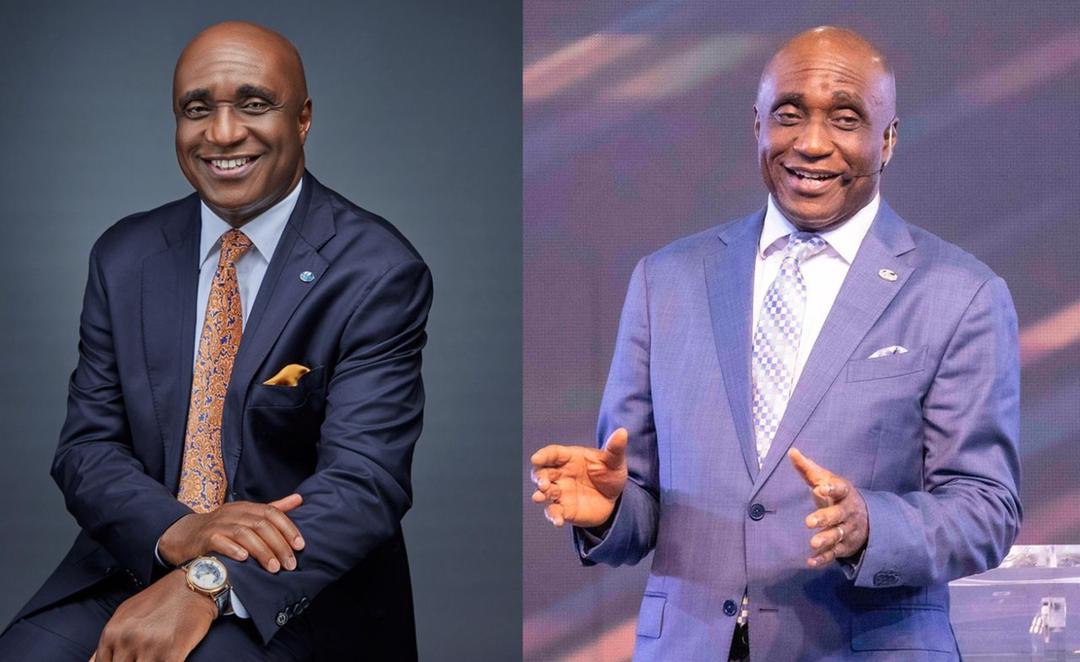
"Give More, Lack Less: Pastor David Ibiyeomie's Bold Prosperity Formula Shakes Christian Giving Culture

In a rousing statement that has stirred waves across Christian circles both in Nigeria and beyond, Pastor David Ibiyeomie, the founding pastor of Salvation Ministries, has issued a powerful challenge to believers worldwide: Increase your offering beyond your tithe, and you will never be broke. The statement, made during a recent church service, has sparked deep conversations on giving, faith, and prosperity within the modern Christian community.
The renowned preacher, known for his unfiltered sermons and unapologetic stance on prosperity, shared a personal example that caught the attention of his audience. "For instance, I don't give less than 20% offering—that's why I'm prosperous," he declared, a proclamation delivered with the confidence and clarity that has come to define his pulpit style.
While the biblical standard for tithing has remained steady at 10% of one’s income, as instructed in scriptures like Malachi 3:10, Pastor Ibiyeomie’s exhortation goes beyond what many Christians traditionally understand or practice. His assertion is not a reinterpretation of the tithe, but rather a call to go above and beyond—to give sacrificially and joyfully. For Pastor Ibiyeomie, it is not about fulfilling a religious obligation but unlocking a divine principle.
The reaction to his message was swift and widespread. Some hailed the teaching as a spiritual key to unlocking financial freedom, a principle they say aligns with biblical promises of sowing and reaping. Others have expressed skepticism, arguing that such teachings place unnecessary pressure on financially struggling believers, or that they risk commodifying faith.
Regardless of where one stands, Pastor Ibiyeomie's words have once again brought the prosperity gospel to the center of public discourse. His church, headquartered in Port Harcourt, has become a beacon for many who seek not only spiritual transformation but material evidence of divine blessing. And he is not shy about connecting the dots between generous giving and prosperity.
Critics argue that the prosperity gospel, often associated with messages like this, distorts the essence of Christian charity and exploits the vulnerable. But Pastor Ibiyeomie offers a different narrative—one rooted in lived experience and theological conviction. His personal testimony of abundance is deeply tied to his giving lifestyle, which he openly attributes as the source of his financial breakthroughs.
“Giving is not a loss, it’s a gain,” he told the congregation. “Every time you drop an offering, you are making a divine investment. I know what I’m saying because I live it. I don't just preach it—I practice it. And that is why I never lack.”
It is difficult to argue with visible results. Salvation Ministries has grown from a small local church into an international Christian movement, with branches across the globe, massive auditoriums, television broadcasts, and a growing digital presence. The ministry’s financial muscle is no secret, and Pastor Ibiyeomie often attributes its success to radical generosity and obedience to divine instructions.
For many of his followers, this teaching is more than motivation—it is a spiritual strategy. In a country like Nigeria, where economic hardship remains a daily reality for millions, the idea that one can give their way out of poverty is both radical and hopeful. It suggests that prosperity is not solely tied to education, background, or opportunities, but to principles that transcend natural limitations.
Pastor Ibiyeomie’s message is not an isolated one within Pentecostalism. The principle of sacrificial giving, especially offerings beyond the tithe, has been emphasized by various charismatic leaders globally. Yet, his candidness and the specific percentage he references—offering no less than 20%—adds a level of challenge that few others have articulated with such boldness.
To his critics, Pastor Ibiyeomie responds not with argument but with results. “Look at my life. Check the fruits,” he once said during a similar sermon. “God is not a man that He should lie. When He says, ‘Give and it shall be given to you,’ He means it.”
In a world where many look to business strategies, stock markets, or side hustles for financial security, Pastor Ibiyeomie calls attention back to spiritual economics—a system in which the currency is faith, obedience, and generosity. To him, giving is not just about church upkeep or religious duty; it's a spiritual transaction with eternal and earthly rewards.
Despite the debates, one thing is certain: his message has hit home with many. Testimonies continue to pour in from members who claim that applying his teachings has led to unexpected promotions, business growth, debt cancellations, and other financial miracles. These stories, shared weekly during church services, fuel the belief that giving is indeed the key to abundance.
However, Pastor Ibiyeomie does not leave room for manipulative giving. His teachings are often balanced with the importance of heart posture—giving not under compulsion, but with joy. “God loves a cheerful giver,” he reminds his audience, quoting 2 Corinthians 9:7. “If you give grudgingly, don’t expect anything. But if you give in faith, believing in God’s Word, He will honor it.”
The ripple effect of his message continues. Other pastors are engaging with the topic, believers are revisiting their giving patterns, and online forums buzz with discussions about offering, wealth, and faith. Whether one agrees with his percentage or not, the conversation Pastor Ibiyeomie has sparked is undeniable: what role does giving truly play in the life of a believer? And how far is too far when it comes to sacrificial offering?
Only time will tell whether his teachings mark a shift in Christian giving culture or remain a bold footnote in the ongoing prosperity gospel debate. But one thing is clear—Pastor David Ibiyeomie has once again reminded the faithful that sometimes, the path to abundance starts not with receiving, but with giving more than you ever thought you could.


